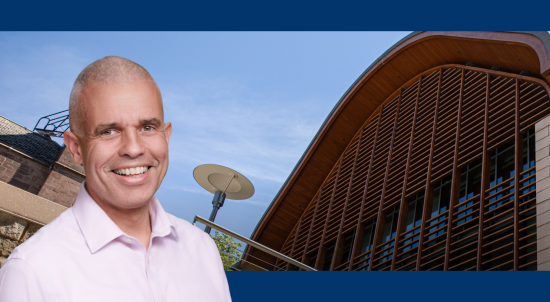
Women's Leadership Program: Leading Teams
Published: January 2024
Description
This six-week online program will teach you skills to drive organizational success through effective leadership, leveraging your unique characteristics. As you connect with other participants from across the globe, you’ll delve into the three pillars of effective leadership: decision-making, networks, and everyday leadership moments. You’ll also develop strategies to enhance your leadership style and gain real-world tools and decision-making frameworks to use in the workplace.
This program empowers executive and entrepreneurial women leaders looking to grow and build successful careers. Senior professionals, C-suite executives, and business founders will optimize their leadership skills and networks. In contrast, mid-to-senior professionals and aspiring leaders will learn what it takes to influence their teams. Though mainly geared towards women, the online program is equally significant for anyone keen on advocating for a human-first approach within business.
Course Takeaways
- Gain practical tools and strategies to build successful careers as senior professionals, C-suite executives, or business founders.
- Develop a deeper understanding of decision making, networks, and the ever-evolving leadership landscape.
- Learn how to influence teams and advocate for positive change within organizations.
- Gain an enhanced perspective of women’s leadership from a global network of professionals.
Meet the Instructors
 Marissa King is an Professor in the School of Management with a secondary appointment in Sociology. Professor King’s current research examines patterns of antidepressant, stimulant, and antipsychotic utilization. In general, her research analyzes the spatial and temporal dimensions of innovation and diffusion. To understand how large-scale phenomena arise from local behavior, she has studied cases ranging from the rise in autism prevalence during the past decade to the organizational foundations of the antislavery movement in the late 19th century. Of central interest is how regulatory environments shape diffusion processes. Professor King received her BA from Reed College and her PhD from Columbia University. Her research appears in journals such as American Sociological Review, American Journal of Sociology, and Administrative Science Quarterly.
Biography
Marissa King is an Professor in the School of Management with a secondary appointment in Sociology. Professor King’s current research examines patterns of antidepressant, stimulant, and antipsychotic utilization. In general, her research analyzes the spatial and temporal dimensions of innovation and diffusion. To understand how large-scale phenomena arise from local behavior, she has studied cases ranging from the rise in autism prevalence during the past decade to the organizational foundations of the antislavery movement in the late 19th century. Of central interest is how regulatory environments shape diffusion processes. Professor King received her BA from Reed College and her PhD from Columbia University. Her research appears in journals such as American Sociological Review, American Journal of Sociology, and Administrative Science Quarterly.
Biography
 Heidi Brooks teaches and advises on the subject of everyday leadership: the everyday micro-moments of impact that shape our lived experiences. Creating more courageous communities—especially within organizations—is a particular passion of hers. Dr. Brooks specializes in large-scale culture change projects focused on individual and collective leadership effectiveness in organizations.
Interpersonal Dynamics, the MBA elective she has taught for 15 years, is one of the courses most in demand at Yale School of Management. Dr. Brooks pioneered the Everyday Leadership course at SOM, where she first taught the Principles of Everyday Leadership. She has also taught Emotional Intelligence, Power & Politics, Managing Teams and Groups, and Coaching Skills for Managers. Dr. Brooks received her doctorate in psychology from the University of California at Berkeley and a bachelor’s degree from Brown University. She is a lifelong experiential learner; you can find her as a student in classrooms as far-ranging as improvisational theater and immersion language lessons.
Biography
Heidi Brooks teaches and advises on the subject of everyday leadership: the everyday micro-moments of impact that shape our lived experiences. Creating more courageous communities—especially within organizations—is a particular passion of hers. Dr. Brooks specializes in large-scale culture change projects focused on individual and collective leadership effectiveness in organizations.
Interpersonal Dynamics, the MBA elective she has taught for 15 years, is one of the courses most in demand at Yale School of Management. Dr. Brooks pioneered the Everyday Leadership course at SOM, where she first taught the Principles of Everyday Leadership. She has also taught Emotional Intelligence, Power & Politics, Managing Teams and Groups, and Coaching Skills for Managers. Dr. Brooks received her doctorate in psychology from the University of California at Berkeley and a bachelor’s degree from Brown University. She is a lifelong experiential learner; you can find her as a student in classrooms as far-ranging as improvisational theater and immersion language lessons.
Biography
 Emma Seppälä’s areas of expertise are positive leadership, emotional intelligence, well-being and social connection. She is the Faculty Director of the Yale School of Management’s Women’s Leadership Program and is the author of The Happiness Track. Seppälä advises leaders on how to build a positive organization and is a frequent contributor to Harvard Business Review, the Washington Post, and Psychology Today.
A repeat guest on Good Morning America, Seppälä’s work and research have been featured in top media and television outlets like The New York Times, The Washington Post, The Chicago Tribune, NPR, The Boston Globe, ABC News and CBS News. Her research on yoga-based breathing for military veterans returning from war in Iraq and Afghanistan was highlighted in the documentary Free the Mind. She is also featured in a number of other documentaries like The Altruism Revolution and What You Do Matters.
Seppälä is the recipient of a number of research grants and service awards including the James W. Lyons Award from Stanford University for founding Stanford’s first academic class on the psychology of happiness and launching well-being programming for Stanford students.
She graduated from Yale (BA), Columbia (MA), and Stanford (PhD). Originally from Paris, France, she is a native speaker of French, English, and German and conversant in Spanish and Mandarin Chinese.
Biography
Emma Seppälä’s areas of expertise are positive leadership, emotional intelligence, well-being and social connection. She is the Faculty Director of the Yale School of Management’s Women’s Leadership Program and is the author of The Happiness Track. Seppälä advises leaders on how to build a positive organization and is a frequent contributor to Harvard Business Review, the Washington Post, and Psychology Today.
A repeat guest on Good Morning America, Seppälä’s work and research have been featured in top media and television outlets like The New York Times, The Washington Post, The Chicago Tribune, NPR, The Boston Globe, ABC News and CBS News. Her research on yoga-based breathing for military veterans returning from war in Iraq and Afghanistan was highlighted in the documentary Free the Mind. She is also featured in a number of other documentaries like The Altruism Revolution and What You Do Matters.
Seppälä is the recipient of a number of research grants and service awards including the James W. Lyons Award from Stanford University for founding Stanford’s first academic class on the psychology of happiness and launching well-being programming for Stanford students.
She graduated from Yale (BA), Columbia (MA), and Stanford (PhD). Originally from Paris, France, she is a native speaker of French, English, and German and conversant in Spanish and Mandarin Chinese.
Biography



